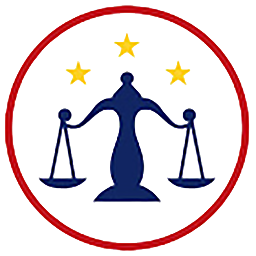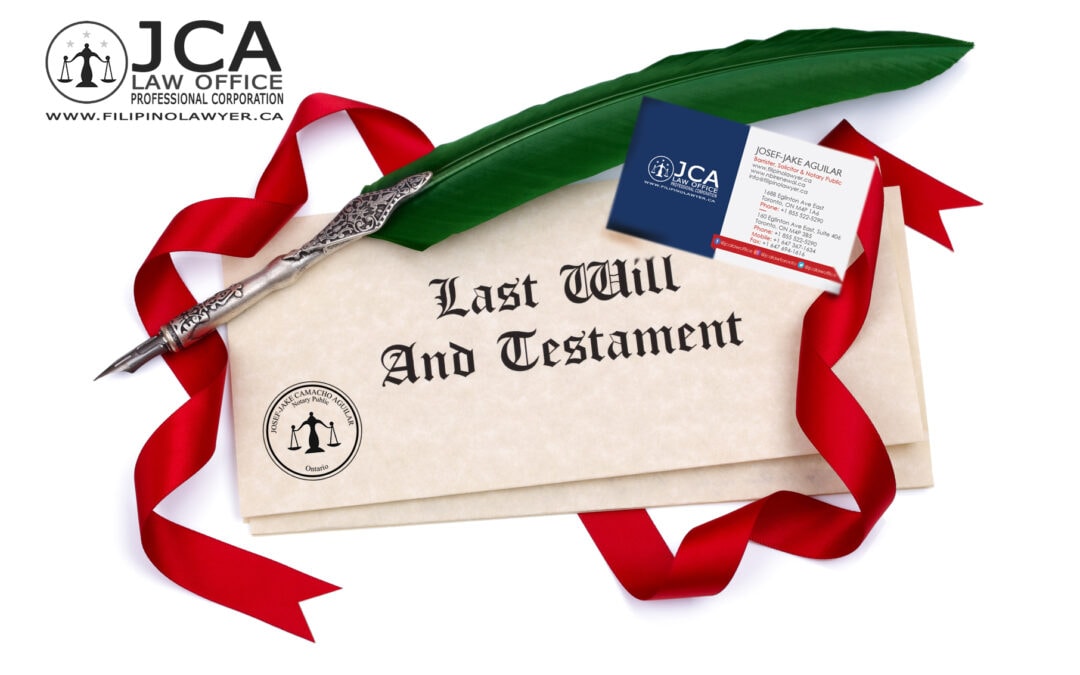Why last will, power of attorney for property & personal care and health care directive (living will) matters?
By Gin Aguilar
It can be the untimely death of someone famous that triggered it. Or, perhaps a feeling of heartburn in the middle of the night, mistaking it for signs of a heart attack. Or simply feeling emotional after bidding goodbye to your child this morning, watching him walk with his friends on the way to school. Whatever the reason may be, at the back of your mind, you are thinking of the possible things that might happen in case you unexpectedly get into an accident, or suddenly get a virus that will make you gravely ill, and face an untimely death.

The Importance Of Last Will, Power Of Attorney For Property, Power Of Attorney For Personal Care & Health Care Directive (Living Will)
Having a heart-to-heart talk about your wishes with loved ones in case of untimely sickness or death is truly important. Yet we rarely discuss them – it’s the elephant in the room. So how do we prepare for crisis and unfortunate life events?
You may start by getting more familiar with the following important legal documents that you may need in order to be prepared for any critical situations in life:
(1) Last Will & Testament
This is a legal document that states how your assets will be distributed after your death. As defined by the Ontario Ministry of the Attorney General, “(a) person’s will is a written document that sets out the person’s wishes about how his or her estate should be taken care of and distributed after death. It takes effect when the person dies.” A recent survey on Wills released in the media suggests that majority (< 55%) of Canadian adults do not have signed & legal Wills. Based on the survey, the reason why Canadians do not have one is because: (1) they do not know how to get started, (2) they believe they are too young to have one and (3) they think they do not have enough properties or finances to distribute anyway.
What will happen if you die and you do not have a will?
Death may happen when you least expect it. It’s a sad reality that we need to keep in mind. When you die without a will, you are said to die “intestate”. This basically means that the Succession Law Reform Act sets out how the estate is distributed, which unfortunately may cause more problems, delays and additional unnecessary costs.
(3) Health Care Directive
A health care directive is a document that provides your direction and wishes with regard to specific issues concerning your personal care, including medical issues, such as taking pain medication when needed, and whether or not you would want to get some medical treatment involving “heroic” measures to artificially prolong your life (or more known as “life support”).
Sometimes, people refer to this as the “living will”. Please take note though that Ontario law in Canada does not use the term “living will”. A will is a document about the distribution of your estate or properties after death, thus, if it is “living” then a power of attorney should suffice.
(2) Power of Attorney (POA)
A Power of Attorney is a legal document that appoints a specific person you trust (also known as your “attorney”, not necessarily your lawyer) to act and make decisions on your behalf if you are unable to look after matters on your own. It is in effect while you are still alive, unlike a will, which only takes effect upon your death.
Types of Power of Attorney:
- Power of Attorney for Property – as defined by the Ministry of Attorney General in Ontario, an attorney for property is the person you name who can make decisions about your financial affairs (including paying your bills, collecting money owed to you, maintaining or selling your house, or managing your investments).**
- Power of Attorney for Personal Care – the person you name as attorney for personal care will have the legal authority to make decisions about your personal care, including medical and health care, nutrition (meals), shelter (housing), clothing, hygiene, and safety, should you become mentally incapable of making these decisions.
WHEN is THE RIGHT TIME TO MAKE A LAST WILL?
The truth of the matter is, there is no right time to create all these will and legal documents. Thinking about your future death or illness and making all these legal documents is no fun. But not having one is worse. The people you care the most will have to face more difficulties and challenges in the future if that happens. Dying without a will may cost your family thousands of dollars in legal bills and might end up in bitter family disputes due to legal battles between your children and/or siblings. All of this would be avoided with the drafting of a proper will and creation of these legal documents.
Let JCA LAW OFFICE assist you in finding solutions to all those dreaded “what if’s”. We have dedicated lawyers who will help you in preparing all these legal documents. To know more about our Wills and Powers of Attorney package, kindly give us a call at (Phone): 1-855-522-5290 (Mobile): 1-647-367-1634 or drop us an email at (Email) info@filipinolawyer.ca.
(1) Last Will & Testament
This is a legal document that states how your assets will be distributed after your death. As defined by the Ontario Ministry of the Attorney General, “(a) person’s will is a written document that sets out the person’s wishes about how his or her estate should be taken care of and distributed after death. It takes effect when the person dies.” A recent survey on Wills released in the media suggests that majority (< 55%) of Canadian adults do not have signed & legal Wills. Based on the survey, the reason why Canadians do not have one is because: (1) they do not know how to get started, (2) they believe they are too young to have one and (3) they think they do not have enough properties or finances to distribute anyway.
What will happen if you die and you do not have a will?
Death may happen when you least expect it. It’s a sad reality that we need to keep in mind. When you die without a will, you are said to die “intestate”. This basically means that the Succession Law Reform Act sets out how the estate is distributed, which unfortunately may cause more problems, delays and additional unnecessary costs.
(2) Power of Attorney (POA)
A Power of Attorney is a legal document that appoints a specific person you trust (also known as your “attorney”, not necessarily your lawyer) to act and make decisions on your behalf if you are unable to look after matters on your own. It is in effect while you are still alive, unlike a will, which only takes effect upon your death.
Types of Power of Attorney:
- Power of Attorney for Property – as defined by the Ministry of Attorney General in Ontario, an attorney for property is the person you name who can make decisions about your financial affairs (including paying your bills, collecting money owed to you, maintaining or selling your house, or managing your investments).**
- Power of Attorney for Personal Care – the person you name as attorney for personal care will have the legal authority to make decisions about your personal care, including medical and health care, nutrition (meals), shelter (housing), clothing, hygiene, and safety, should you become mentally incapable of making these decisions.
(3) Health Care Directive
A health care directive is a document that provides your direction and wishes with regard to specific issues concerning your personal care, including medical issues, such as taking pain medication when needed, and whether or not you would want to get some medical treatment involving “heroic” measures to artificially prolong your life (or more known as “life support”).
Sometimes, people refer to this as the “living will”. Please take note though that Ontario law in Canada does not use the term “living will”. A will is a document about the distribution of your estate or properties after death, thus, if it is “living” then a power of attorney should suffice.
WHEN is THE RIGHT TIME TO MAKE A LAST WILL?
The truth of the matter is, there is no right time to create all these will and legal documents. Thinking about your future death or illness and making all these legal documents is no fun. But not having one is worse. The people you care the most will have to face more difficulties and challenges in the future if that happens. Dying without a will may cost your family thousands of dollars in legal bills and might end up in bitter family disputes due to legal battles between your children and/or siblings. All of this would be avoided with the drafting of a proper will and creation of these legal documents.
Let JCA LAW OFFICE assist you in finding solutions to all those dreaded “what if’s”. We have dedicated lawyers who will help you in preparing all these legal documents. To know more about our Wills and Powers of Attorney package, kindly give us a call at (Phone): 1-855-522-5290 (Mobile): 1-647-367-1634 or drop us an email at (Email) info@filipinolawyer.ca.
REFERENCES:
** (1) Ministry of the Attorney General https://www.attorneygeneral.jus.gov.on.ca/english/family/pgt/incapacity/poa.php
https://www.ctvnews.ca/lifestyle/majority-of-canadians-don-t-have-a-will-poll-1.3772853

